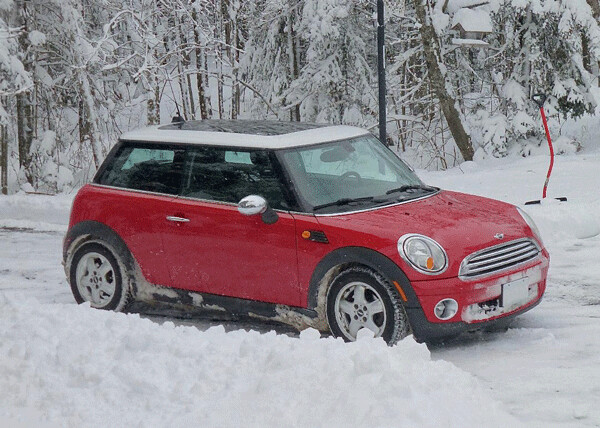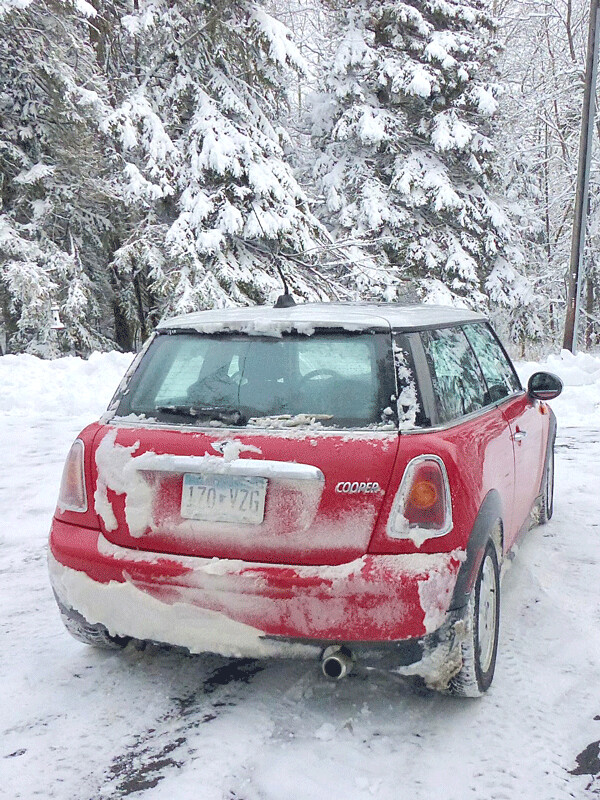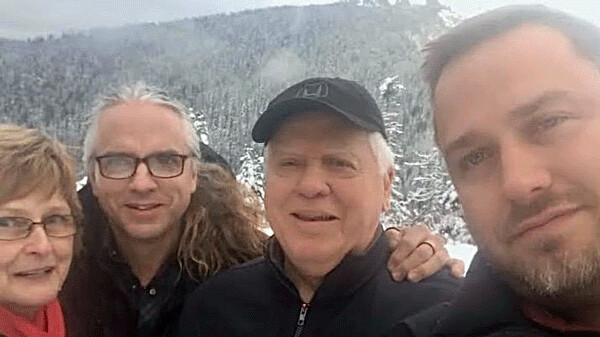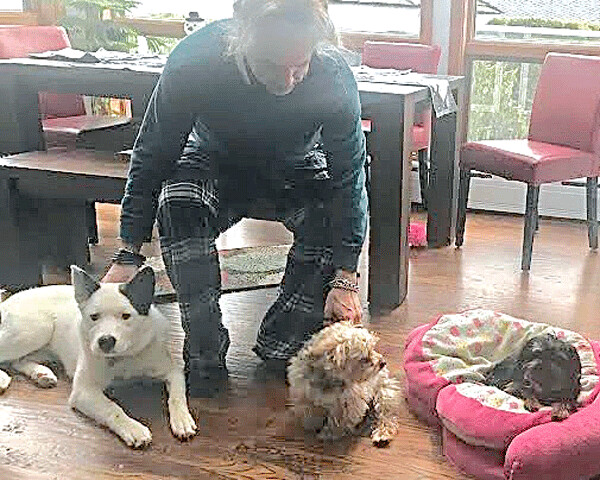Tough, Decade-old Mini Pays Foul-Weather Dividend


‘Twas the night after Christmas - OK, second night after Christmas - and all through the windblown snow not a creature was stirring on Interstate 35 between North Branch and Duluth, except for about a dozen other souls who had the same need to get there as we did.
Those others were in new pickup trucks or SUVs, mostly, and my wife, Joan, and I were in our trusty 2007 Mini Cooper, which has been our beloved companion for a decade and which has never let us down.
But this time was different. This time we were setting out from the Minneapolis-St. Paul International Airport at 11 p.m. for what would normally be a two and a half hour drive. Maybe three. But if you recall the second day after Christmas this year, it rained in the Twin Cities, and it snowed 15 inches of nasty, windblown, crusty snow on the North Shore outside of Duluth, and every mixture of the two extremes played tricks on anyone foolish enough to drive through it. Driving new cars is a pure joy, even when the evaluation process might diminish the outright pleasure I could otherwise derive from test-driving the newest vehicles from any and all manufacturers. At the same time, I love the idea of owning a car that has all the attributes of a good Boy Scout - trustworthy, honest, loyal, thrifty, and all that.
Driving a car for a decade or so is one thing, and it is diametrically opposed to the switching from one new vehicle to another week after week for test-drive reviews. Our family has found a reasonable solution, and that is to own a car that will work for the long haul, and my wife Joan generally does most of the driving in that vehicle, while I continue to test-drive new stuff, always encouraging her, and my sons, to also try the new cars and give me varied feedback.
At Christmas this year, we did what we’ve always wanted to do but have never before accomplished. I gathered up enough Delta SkyMiles coupons to get three round-trip tickets for Joan, our older son Jack, and me, to Seattle and back, to meet our younger son, Jeff, and spend Christmas with him in Bellingham, Washington.
After talking over the most reasonable and efficient ways to pull it together, Joan and I decided to drive our 2007 Mini Cooper to pick up Jack on the way and head for the MSP air terminal. We did it and, thanks to Park and Go, we secured the car and got shuttled to the airport. It was a quick trip, as it always seems to be when you get your family together. The plan came about because Jeff was house-sitting - and mainly dog-sitting - for a good friend’s family, and they suggested inviting us out to stay at their place as well.
Wonderful time, with time to think amid the clamoring of the three household dogs. We’re getting to the age when we’ve stopped bugging our sons to get married and start families of their own. Apparently they’re having too much fun being single. But because of the unusually high number of close friends who have met untimely deaths in the past year, we need to savor every opportunity we have for the four of us to spend time together.
We enjoyed seeing the sights of Bellingham, with the seaside sunsets to the West and the majestic Mount Baker to the East, and Jeff showed off his new Tacoma pickup by driving us to the top of the Mount Baker ski area, where we had a great lunch and more sightseeing. They went from not having enough snow to being dumped on for about a 3-4 foot base now.


The dogs were predictably crazy. The big one, Nova, a mixture that resulted in her looking a lot like the old RCA Victor dog, had been around the two tiny dogs -- Beckham and Barbara - so much we think she thought she was a lot smaller than she is, and could play too rough with her adopted siblings. But we enjoyed them, with room to let them run every day.
When it came time to leave last Friday, Jeff went off to work, and we said our good-byes to the dogs, locked up, and hi the road for Seattle, a couple of hours away. All went well, but I had seen the forecast on my trusty iPhone’s weather app. We landed at MSP and got shuttled to our car and the driver told us it had snowed early, but then just rain, which washed away most of the snow. We loaded everything into the Mini’s astoundingly spacious capacity and headed up I-35E. After we dropped Jack off at his house, the rain had turned to what they call a “wintry mixture,” and by the time we got up to North Branch, it was snow, blowing horizontal.
I noticed the Mini’s tiny engine never hesitated, but I also noted that our Nokian WGR-3 tires must be showing signs of age, because the car’s front end wanted to wander a bit. That is not a good thing, on an icy and snow-covered surface.
At North Branch, we found ourselves behind two plow-trucks who were running side by side at about 35 miles per hour. That was fine with us, although a couple of aggressive drivers passed us and seemed impatient to go that slowly. The plow trucks exited at Pine City, and we were on our own. We were particularly on our own when the three or four cars that had been with us all took off and disappeared in a cloud of blowing snow.
My sons both messaged us, urging us to stay at Jack’s, or at an inexpensive motel, but we wanted to get home and to make a true confession here, I actually love to drive in severely harsh winter storms. That’s foolhardy, but ever since I learned to drive in winters on the Duluth hillsides, the adrenaline high I feel from the mandatory sharpened and heightened senses makes for a weird sense of achievement.
This was different, however. I apologized to Joan, because when she said she thought our tires might be wearing out, I scoffed that nearly worn-out Nokians were probably better than newer other tires. Curiously, the next day I stopped to see Jeff Hofslund at Foreign Affairs and told him of my concern, and that I was betting we’d gotten those tires five years ago. He looked it up on his slick computer and found that one day earlier was the five-year anniversary or our purchase of those tires. Driving them winter and summer, for about 50,000 miles, certainly had lessened their effectiveness.
That, of course, was after the fact. During the drive, we found no other cars out. The few who had driven off ahead were gone, and we never caught up to any others, and only two or three cars eased up behind us and passed, soon disappearing.
We didn’t keep up because the front end was wandering a bit, feeling like the bow of a speedboat in rough water. This wasn’t rough, it was completely smooth, but it also had a thorough covering of snow over the ice base underneath. We were driving with no lines visible, no side lane lines, no dotted center line, and no other tracks, with the passing cars tracks swiftly covered over.
Joan drifted off to sleep, assured that I was riveted to the task at hand, and I was glad she did. At least one of us could rest. The challenge of driving through what amounted to complete whiteout conditions presented interesting problems.
For example, there was no way to tell how much room there was on either side between the Mini and the edge of the road. So a few times, I eased over to the right until my tires caught the corrugated warning line for lane-departure, then I could ease back to what I figured was the center of the two lanes.
I glanced at the clock on the Mini dashboard and it said 3:30, and we were a long way from home yet. When I got near the Cloquet exits, I knew we were almost there. Coming down Thompson Hill, another car approached from behind, apparently unaware of the icy coating under the snow on the freeway. We pulled over and let him go.
The biggest challenge was yet to come. I headed out onto the highway heading East out of Duluth, and got to our road. All that was left was two miles of a long incline and we’d be safe and at home. However, it was obvious that the road had been plowed, but it had to be hours earlier, and it surely needed another plowing. What was left was a crazy pattern of rough, rugged lanes carved by tires to leave hard ridges about a foot high running longitudinally like ribbons
The poor Mini was churning onward and upward, with the front end, led by the license plate, actually plowing up snow that flew over the hood. I kept going, and as we headed up our final hill, the traction-control warning light flashed repeatedly, meaning we were spinning more than we were moving. We made it up most of the final hill, but the spinning increased and the movement decreased, right up until we were sitting motionless in the middle of our road. I backed down, carefully, and tried again, but the same thing happened again.
Then I had an idea. I backed down to the bottom or our hill, where I trusted that a neighbor across the road might be plowed out. He was. So I swung the rear end into his driveway and backed in. Then I pulled out, carefully, aimed down the road. At that point, I shifted into reverse and started calmly and smoothly to back up the hill.
Now, front-wheel drive is good for almost every driving condition, but going up a hill, there is a slight weight transfer from front to rear, lifting the downforce from the front drive wheels. So when you back up, any weight transfer goes to the front end, where more weight it a benefit over the drive wheels.
Sure enough, I backed up the hill, watching carefully to see if any headlight glow might be approaching, but there was none. Our neighbors are smarter than to venture out in those conditions. I kept backing up, closer and closer to our driveway, until I could back through the final 90-degree turn and make it. I backed in about two-thirds of the way into the driveway our neighbor had graciously tried to plow into the 15-inch depth that was there.
We climbed out, carried all our luggage, and made it into the house, warm and secure as it awaited our arrival. It was 5:30 a.m., and the trip that I have often made in a bit less than 3 hours had taken 6 and a half hours.
Both of our sons stayed up all night, texting Joan to check on our progress. They couldn’t believe we made it, and they couldn’t believe how long it took us. They are both great people, but, of course, I’m prejudiced. There’s also a sensitivity factor involved. As we were leaving for the Seattle airport, Jeff had already left for work. We all gave each dog a final petting, and I must admit that they could be nuisances for much of the time we were there, but we had become attached in four days. In fact, when Jack made his final rounds of petting, I detected a tear in his eyes at the sadness he felt for leaving those dogs.
And now we were home. It occurred to me, though, that the severe spinning I encountered trying to make our hill might have been an indication that I had caused some damage to the transmission, and that it was the transmission slipping rather than the tires. Worrying about that, I also realized we had to make it, as matter of survival with each passing mile. We had to trust the Mini to carry us home, and it did.
At about noon, I ventured out to shovel my way to the car, worrying that there might be some damage to assess. I started it up, and it sprung to life. By then the roads and highways had been completely plowed, and I drove smoothly out onto our road, down the hill, and onto the freeway heading into Lester Park. I took it up to Foreign Affairs just to be reassured, and Jeff Hofslund laughed and said he knew the car would do the job, because he, too, owns one, which his wife likes so much she won’t let him sell it or trade it in.
If those rugged foot-high ruts of ice-hardened snow had broken something on the underside of the Mini, we would have had to consider it a necessary problem for getting home. I made an appointment to get some new tires, and an oil change, because the Mini was tougher than Old Man Winter’s icy blast.
It’s the least we could do to pay it back for that loyalty. And maybe we’ll get a dog.
